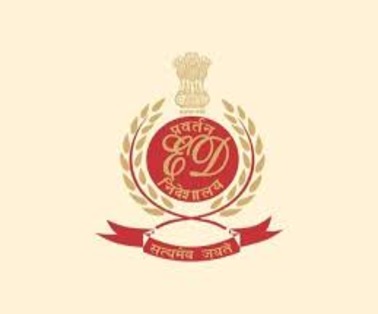The Centre informed the Supreme Court that Enforcement Directorate (ED) chief Sanjay Kumar Mishra’s tenure will not continue in office beyond November 2023.
Enforcement Directorate
- The Directorate of Enforcement or the ED is a multi-disciplinary organization mandated with investigation of economic crimes and violations of foreign exchange laws.
- It functions under the Department of Revenue of the Ministry of Finance.
- As a premier financial investigation agency of the Government of India, the ED functions in strict compliance with the Constitution and Laws of India.
- ED with its headquarters at New Delhi, is headed by the Director of Enforcement.
- There are five regional offices at Mumbai, Chennai, Chandigarh, Kolkata and Delhi headed by Special Directors of Enforcement.
- The tenure of the directors’ is two years, but directors’ tenure can be extended from two to five years by giving three annual extensions.
- Recruitment of the officers is done directly and by drawing officers from other investigation agencies.
- It comprises officers of IRS (Indian Revenue Services), IPS (Indian Police Services) and IAS (Indian Administrative Services) such as Income Tax officer, Excise officer, Customs officer, and police.
History Of Enforcement Directorate

Functions Of Enforcement Directorate
The statutory functions of the Directorate include enforcement of following Acts:
- The Prevention of Money Laundering Act, 2002 (PMLA):It is a criminal law enacted to prevent money laundering and to provide for confiscation of property derived from, or involved in, money-laundering and for matters connected therewith or incidental thereto. ED has been given the responsibility to enforce the provisions of the PMLA by conducting investigation to trace the assets derived from proceeds of crime, to provisionally attach the property and to ensure prosecution of the offenders and confiscation of the property by the Special court.
- The Foreign Exchange Management Act, 1999 (FEMA): It is a civil law enacted to consolidate and amend the laws relating to facilitate external trade and payments and to promote the orderly development and maintenance of foreign exchange market in India. ED has been given the responsibility to conduct investigation into suspected contraventions of foreign exchange laws and regulations, to adjudicate and impose penalties on those adjudged to have contravened the law.
- The Fugitive Economic Offenders Act, 2018 (FEOA):This law was enacted to deter economic offenders from evading the process of Indian law by remaining outside the jurisdiction of Indian courts. It is a law whereby Directorate is mandated to attach the properties of the fugitive economic offenders who have escaped from the India warranting arrest and provide for the confiscation of their properties to the Central Government.
- The Foreign Exchange Regulation Act, 1973 (FERA):The main functions under the repealed FERA are to adjudicate the Show Cause Notices issued under the said Act up to 31.5.2002 for the alleged contraventions of the Act which may result in imposition of penalties and to pursue prosecutions launched under FERA in the concerned courts.
- Sponsoring agency under COFEPOSA:Under the Conservation of Foreign Exchange and Prevention of Smuggling Activities Act, 1974 (COFEPOSA), this Directorate is empowered to sponsor cases of preventive detention with regard to contraventions of FEMA.
Special Court Of Enforcement Directorate
- For the trial of an offence punishable under section 4 of PMLA, the Central Government (in consultation with the Chief Justice of the High Court), designates one or more Sessions Court as Special Court(s). The court is also called “PMLA Court”
- Any appeal against any order passed by PMLA court can directly be filed in the High Court for that jurisdiction
Enforcement Directorate Chief
- The court is hearing petitions filed by Congress party spokesperson Randeep Singh Surjewala, Trinamool Congress leader Mahua Moitra, social activist and General Secretary of Madhya Pradesh Congress Mahila Committee Jaya Thakur.
- They have argued that the “piecemeal” extensions affect “institutional independence”.
- Solicitor General Tushar Mehta said Mr. Mishra was given his third extension keeping in view the ongoing evaluation by the Financial Action Task Force (FATF).
- 95% political personalities arrested in money laundering cases are from the Opposition
- In 2021, the Supreme Court had categorically directed the government to not give any further extension to Mr. Mishra.
- However, the government, within two months of the judgment, made amendments to the Central Vigilance Commission (CVC) Act by way of promulgation of an ordinance in November 2021.
- Allowing the tenure of the Director of the ED to be extended from two years to up to five years, with the possibility of three annual extensions.
- These amendments paved the way for the government to stretch Mr. Mishra’s tenure by a year till November 2022.
- On the strength of these changes, the government had again given the 1984-batch Indian Revenue Service officer his third extension in November 2022.
- He is expected to continue till November 18, 2023.
To Download Monthly Current Affairs PDF Click here
Get Inspiration from CLAT 2025 Topper
Click here to get a free demo
Everything About CLAT 2025



